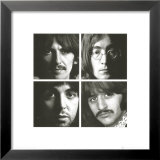The rock magazine Crawdaddy is back, on line this time; they've come up with an interesting take on rock of the post-punk era, a feature entitled "Class of '78." The features spotlights recordings from the late 70s and early 80s that tried to remake rock music from the ground up. Crawdaddy calls it the period of rock's "extreme makeover"; that seems about right.
The feature hearkens back to Simon Reynolds' argument for rock music of the era, the spirit of which is summarized in the title of Reynolds' book: "Rip It Up and Start Again." You can also hear the frustration with the rock status quo in the lament of the Pop Group's Gareth Sager, in an NME interview in 1978: "People call us a rock band [because] we're up there with guitars and things. I try to say I'm NOT in a rock group but it's pretty difficult." :) No doubt, Gareth.
This pretty much sums up post-punk: a lot of bands playing a highly idiosyncratic version of rock, and fed up with what they perceived as the limits of the genre. It quickly led to interesting fusions of rock with other genres, like dance music and 'dub' reggae.
Most of all, groups like the Mekons and the Pop Group rejected, or tried to, the conceptual baggage that had rock had taken on since the 1960s: its commercial trapping, but also its association with facile notions of youth rebellion. In their quest to remake rock, the post punk bands demonstrated an extreme eclecticism, and an openness to ideas outside of rock, nearly unique in the history of the music. Bands often made music that alluded to avant-garde literature, incorporated sonic experiments more commonly associated with avant-garde music than rock, or in the case of Leeds' the Gang of Four, tried to apply the politically engaged, acutely self-conscious stance to cinema adopted by post-1968 Jean-Luc Godard to the process of songwriting.
The history and aspirations of UK post-punk are capably documented in Reynolds' memorable book. That said, I think Crawdaddy's "Class of 78" feature improves on Reynolds by also focusing on American musicians as well as the more usual suspects: namely bands from the bleak industrial regions of Northern England like Joy Division, Cabaret Voltaire, etc. For me, the ultimate post-punk artist is none other than Minneapolis' own Prince, with his consciously eclectic musical style and courageous, even revolutionary, disregard of the color line in rock. Yes, he's the heir to James Brown and Sly: but listen to "When You Were Mine" and "Little Red Corvette." Prince clearly appreciated, and appropriated, the keyboards and brittle rock sound that typified the New Wave.
All this is to say that Britain's The Godfathers missed their moment. Too late for punk, even for post-punk, they released their first record in 1985, a year outside the Reynold's time-line for post-punk (1978-1984). I would still argue they were part of this movement to bring about "rock's extreme makeover" (Crawdaddy). For me, "Birth, School, Work, Death" (1988) is one of the great rock songs, period.
It's very much of its moment, too. The inspiration for the song, if one could call it that, was guitarist Kris Dollimore's rage and frustration over Thatcher being re-elected for a third term as Prime Minister, in 1987. "Third Time! Fuck me! Damn you, England!" The group actually released a song entitled "This Damn Nation" a few years before: but the great thing about the Godfather is that ALL their songs could have had that title.
I admit one reason I love the song is because the group tries so very hard to make it difficult to love: stark lyrics, verging on unintended comedy, hard rock with little sweetening, verse/chorus, no fucking about. The song isn't about catharsis, either. The band seems to have no truck with the notion that being in a group or playing a rock song actually changes anything. They have no illusions that any kind of commercialized youth revolt is going to solve their problems either. That's what makes this post-punk. They're fucked, and they know it. And we get to hear about it.
The Godfathers recalled Dr. Feelgood both in their music and their fashion sense: another band that played blues-based hard rock with no frills, and who dressed like they were part of the Krays' East End gang. However, if Dr. Feelgood provided the Godfathers with a template, they added explicitly political lyrics, not to mention a rage rooted in class resentment. It was the return of Alan Sillitoe's Arthur Seaton, but clear this time about who were his enemies.
And kudos to the Godfathers for figuring out that East End gangster was cool before Iain Sinclair. As this video demonstrates, they also were smart enough to appropriate the gangster mise en scene of the Roeg/Cammell film Performance a good six years before Oasis did, in the "Live Forever" video (1994).
"B, S, W, D" is all tension, no release: unless you count the guitar solos, each one angrier than the next. "I cut myself but I don't bleed/Because I don't get what I need." And: "I don't need your sympathy/ There's nothing in this world for me." Just Perfect.
